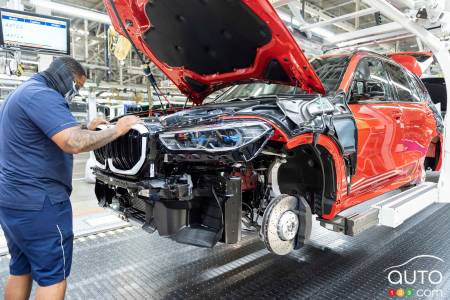In 2020, year one of the current pandemic, economies around the world essentially shut down, and auto sales dropped dramatically. 2021 saw a partial rebound, but the increase was not as high as some had hoped.
That was due to several, interrelated factors: off-and-on tightening of health-related restrictions around the globe due to successive waves of Covid-19, and then the microchip shortages and supply chain issues that came in their wake.
More-optimistic observers were predicting a return to at least near-normalcy in 2022, but the supply-chain problems are more acute than ever. Manufacturers are being affected on several levels and the automotive market has never been crazier. As a result, automotive inventories are at an all-time low.
Browse cars for sale available near you
This has led the Cox Automotive Group industry analysis and prediction firm to once again lower its forecast for full-year 2022 U.S. vehicle sales. The same is true for Canada.
The predictions are so pessimistic that Cox Automotive now says fewer new vehicles will be sold this year than in 2020. Where carmakers sold a total of 14.6 million units globally in 2020, Cox is predicting 14.4 million units when 2022 is said and done. The firm had previously forecast sales of 16 million vehicles in 2022, then revised that to 15.3 million a few months ago. Now it's been reduced again.
It’s not hard to see why Cox keeps lowering its forecast: announcements about production cuts at different automakers are commonplace these days across the industry. A favourite pastime of current would-be buyers is to share war stories about the long wait times they're being given for new vehicles by dealerships.

Cox forecasts June sales to be around 1.2 million units, down 7.5 percent from last year's 1.3 million. Most automakers are set to release their June and second-quarter results tomorrow.
Since June 2021, monthly sales have averaged 1.1 million units per month. Against this backdrop, “It is simply impossible given the latest production forecast to get to 15 million by the end of the year,” said Jonathan Smoke, chief economist at Cox Automotive.
For its part, demand remains steady, although it may fade a bit by year-end due to inflation and higher interest rates. Said Charlie Chesbrough, senior economist at Cox Automotive, “There's still a greater demand than what we have available”.
And when can we expect a return to normal? Ask the optimists, and they’ll say early 2023; others, let’s call them the realists, are pointing more to 2024.





